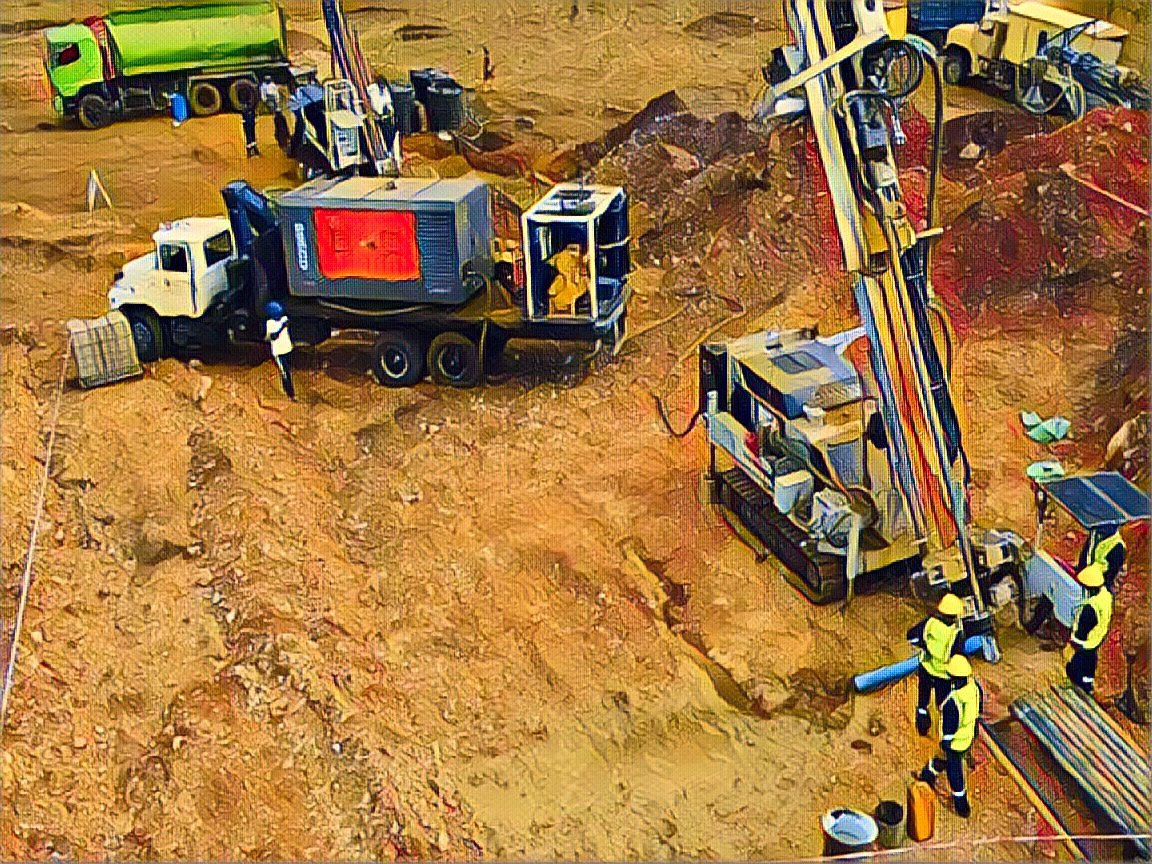In Nigeria, the abundance of gold has not led to prosperity for the nation. Despite having an estimated 21.37 tonnes of gold reserves, valued at approximately $1.8 billion, the wealth generated from these resources has mostly ended up in private hands rather than contributing to the government’s funds. This situation persists despite the introduction of the Presidential Artisanal Gold Mining Development Initiative (PAGMI) four years ago, which has failed to effectively reduce the widespread illegal mining activities across the country.
As Nigeria struggles with a weakening foreign exchange market and decreasing oil revenues, the issue of illicit gold mining further compounds its economic challenges. States that are rich in these resources are plagued by severe poverty, with some unable to meet basic salary obligations. The situation is worsened by reports of influential Nigerians and international entities smuggling gold using private jets, in spite of official bans on the export of raw solid minerals.
Stakeholders accuse the government of merely paying lip service to the problem. Nigeria boasts robust mining laws, yet enforcement is lax, leading to environmental degradation and missed economic opportunities. In 2019, President Buhari established PAGMI, which was supposed to herald a new era of regulated artisanal mining. However, the initiative has fallen short of expectations, with the government only showcasing a single gold bar mined through PAGMI in early 2020 as a sign of success.
Financially, the sector remains underwhelming. In 2021, the solid mineral sector contributed a mere 0.63% to the GDP and 2.62% to government revenue. Meanwhile, the Nigeria Extractive Industries Transparency Initiative (NEITI) audit report of 2020 highlighted that the total revenue from solid minerals was significantly less than potential, amounting to only N116.82 billion. This is a stark contrast to the potential billions that could be harnessed if the sector were properly managed and regulated.
The Nigerian government, with assistance from entities like the Nigeria Security and Civil Defence Corps (NSCDC), has attempted to address the issue by deploying mining marshals to combat illegal mining. However, these efforts have been insufficient. The porous borders, managed by the Nigerian Port Authority (NPA), and the involvement of wealthy nationals suggest a deep-rooted network of corruption that facilitates the ongoing theft of national resources.
Experts like Adeyemo Temitope, CEO of Geocardinal Engineering Services Limited, criticize the government’s approach, noting that illegal miners often use sophisticated equipment and operate blatantly, suggesting tacit governmental complicity. Meanwhile, Energy and solid mineral expert Prof Wunmi Iledare laments the government’s failure to secure the ownership of mineral resources, which is mandated by law to benefit the populace.
There is a pressing need for comprehensive action against illegal mining that extends beyond sporadic crackdowns. This includes enforcing existing laws, engaging communities, and investing in sustainable alternatives for those involved in artisanal mining. Furthermore, there is an urgent call to shift from policy to practical implementation, especially as Nigeria seeks to diversify its economy away from oil dependence.
The persistent illegal mining in Nigeria highlights not only a loss of revenue but also a broader failure in governance and resource management. As the global price of gold remains high, and with Nigeria’s economy in need of diversification, it is critical that the government strengthens its resolve to harness this valuable resource responsibly and transparently. Only through a concerted effort that includes better enforcement, community engagement, and international cooperation can Nigeria hope to convert its underground gold into tangible economic growth and stability.
Source: The Guardian


